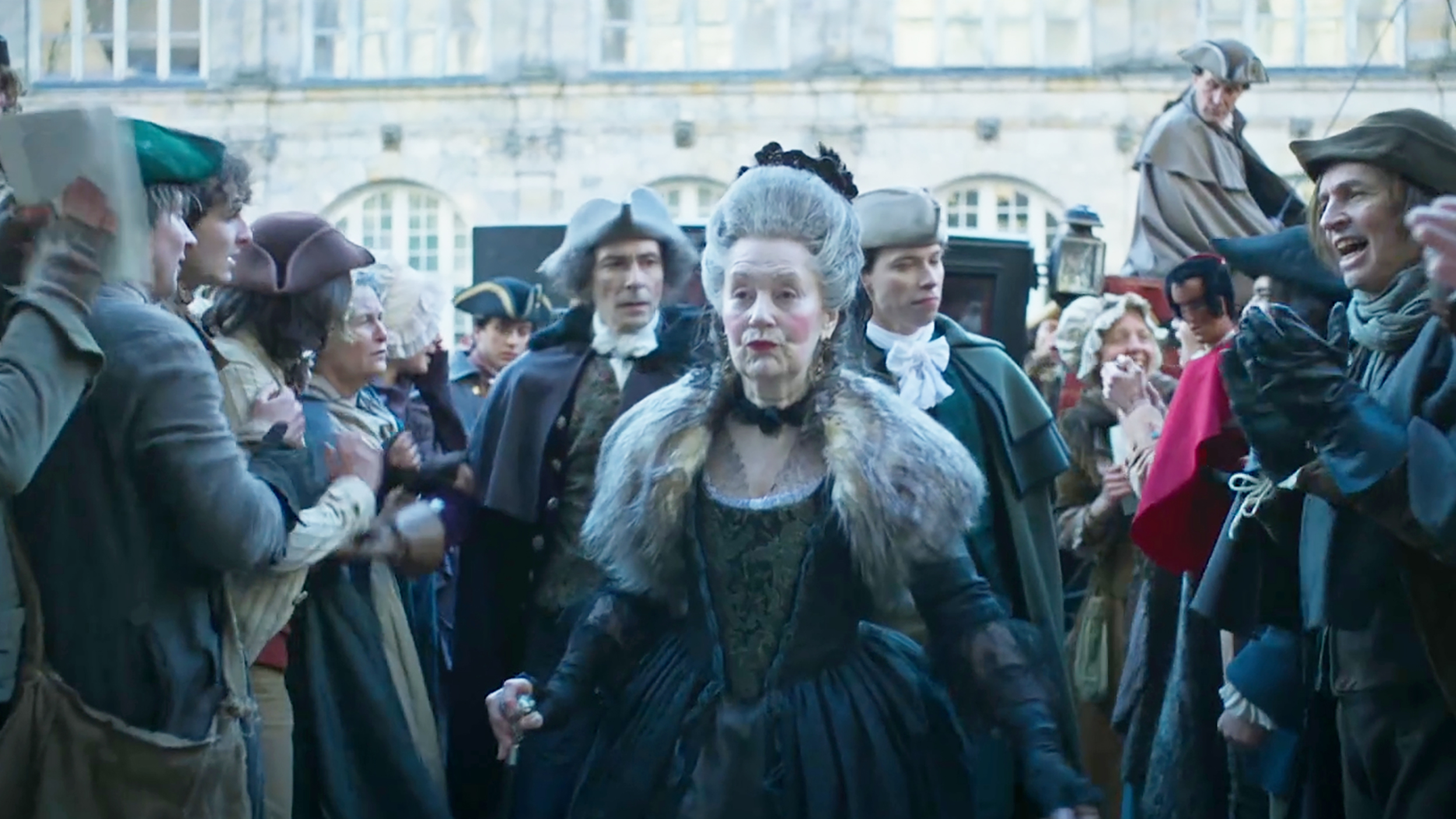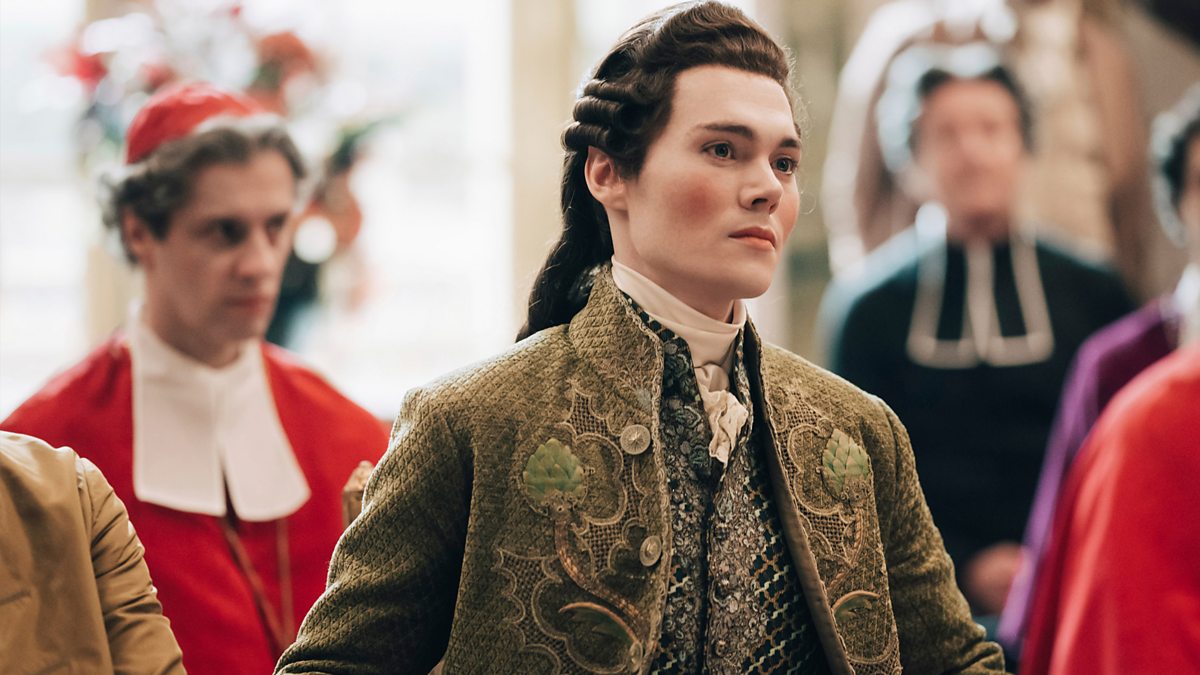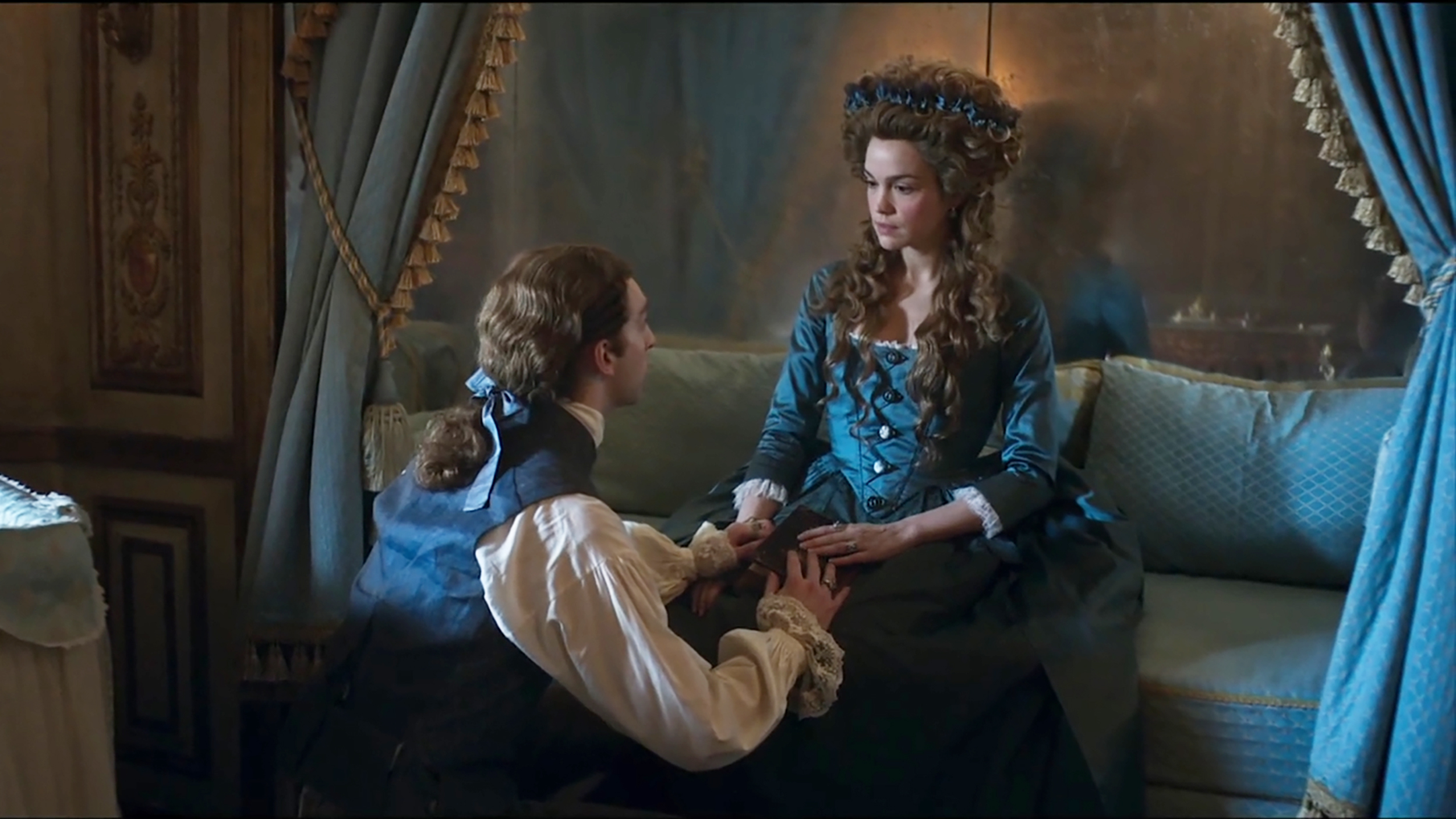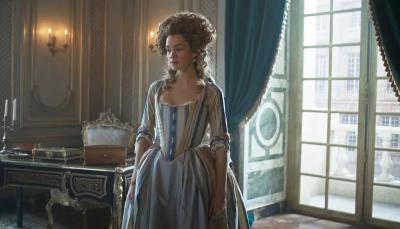'Marie Antoinette' Season 2 Costumes Take A Backseat to Drama in Its Later Episodes
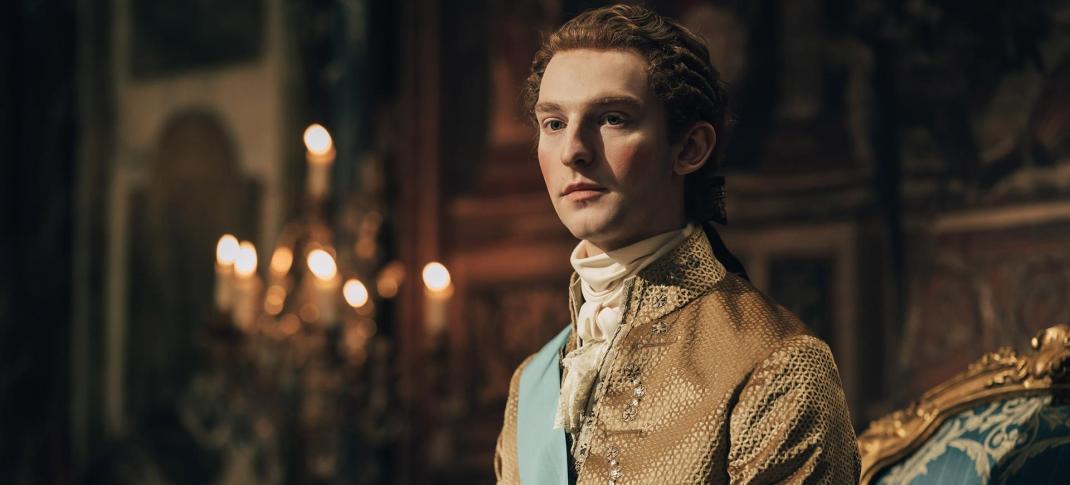
Louis Cunningham as Louis XVI in 'Marie Antoinette' Season 2
Caroline Dubois/Capa Drama/Canal+
The two penultimate episodes of Marie Antoinette’s second season don’t feature much novelty in the costumes. However, what they lack in that area, they make up for in pure drama, thanks to Cardinal Rohan’s great-aunt, Madame de Rohan-Soubise, and Ol’ Sourpuss himself, King Louis’s brother, Provence.
In “Hated, Humbled, and Mortified”, Mme. de Rohan-Soubise arrives at the courthouse exuding Goth Granny Vibes, courtesy of the little capelet she’s wearing atop her black-and-gold gown and fussy little black ribbon choker. The capelet is lightweight, in variegated shades of pale-to-dark brown, just covering her shoulders to the top of her bodice. From some angles, it looks like fur, but from others, it seems to be feathered. Did Europe’s most glamorous pheasants give their literal tail feathers? Is it vintage ocelot? I like to imagine it’s both.
Regardless, the materials and her overall aesthetic suggest it’s made to be worn for both warmth and style, approximately 40 years before anything anyone else is wearing. This is a woman committed to her look and not in the habit of reconsidering any opinion she has ever held. Mme. de Rohan-Soubise is lodged in my mind as a cross between Iris Apfel and Lady Catherine de Bourgh.
Goth Granny Vibes
Everything she wears is a statement piece, and while her fashion certainly speaks for her, she’s not shy about letting her literal voice be heard, too. It’s hard to imagine one existing without the other, let alone one being effective without the other. They are complementary, mutually-reinforcing facets of a truly grande dame.
As for Provence, he loves a richly embroidered green coat. In this episode, we get a reprise of one of his favorites, an emerald green woven main fabric featuring botanical embroidery in a contrasting lighter green shade that, in certain lights, looks fresh and springy, and in others, dangerously acidic.
Provence's Coats of Mutable Colors
The mutability of this color suits Provence himself, who always seems to want two irreconcilable things at once: to be his brother’s confidant and to wallow in the dyspeptic malcontentment and jealousy that are the ultimate province of the younger brother who knows he’ll never be king. You know, unless something dreadful and very sad, or even just politically devastating, were to befall his big brother.
Obviously, anything that removed Louis from the throne would grieve Provence to his very soul, but he would also manage to find it within himself to step up to the greatest position of power in the land. You know, for the good of the nation. But only if he had to!
In “Madame Deficit”, Provence wears another magnificent green overcoat, this one in a shade close to Castelvetrano olives. It’s muted, but lush, and the embroidery is again a very complex botanical in a brighter shade of green, with touches of gold thread and some shades of brown for dimension. In the close-up, the background fabric looks like a jacquard weave in an all-over small diamond pattern, and the botanical element resembles artichokes, growing upward on their stems. The palette is muted, but the graphic design is bolder than the coat so strongly featured in the earlier episode.
Overall, both coats reinforce how much Provence loves his tone-on-tone looks. Green is a great signature color choice for him for practical and metaphorical reasons. First, green and overweening ambition are the two strongest bonds Provence shared with his wife, Josephine. Second, green was a very high-status color because it was difficult to achieve and even more difficult to maintain. The plant-dye greens of the time weren’t colorfast and lost their brightness and saturation easily.
The fading problem was solved in the late 1700s by a Swedish chemist named Kat Scheele, whose eponymous dye, Scheele’s green, used high levels of arsenic to yield deep, color-fast shades. So, is Provence being driven slowly mad and/or debilitatingly ill by his own clothing? It’s a very reasonable question to ponder, but this being the story of one of the most intense class wars of Western European history, the bigger questions that this jacket prompts are about the dangers presented to the workers who dyed these fabrics, threads, and flosses.
Marie Antoinette's Blues
His love of green, combined with Orléans’s devotion to purple, Antoinette’s leaning ever further into her embrace of blue, all contrast with poor, hapless Louis’s preference for quieter shades like the rather subdued gold-fawn coat he wears throughout “Madame Deficit”. By the time Orléans seizes his moment to insist that Louis’s edict for a massive loan be refused by parliament, Louis looks like nothing so much as a beleaguered professor of political science at a small liberal arts college.
By the end of the episode, the youngest princess, Sophie, has died in infancy, Louis has endured a near-total mental and physical breakdown due to the catastrophe of France’s national finances being made known, Antoinette has taken over many of his duties, and their nation’s starving are on the march toward Paris. None of this is going to end well.
Marie Antoinette Season 2 airs Sundays on most local PBS stations, the PBS App, and the PBS Masterpiece Prime Video Channel at 10 p.m. ET. All eight episodes of the new series are available on PBS Passport for members to stream. Season 1 is available to stream for members on PBS Passport and on the Prime Video Masterpiece Channel.

